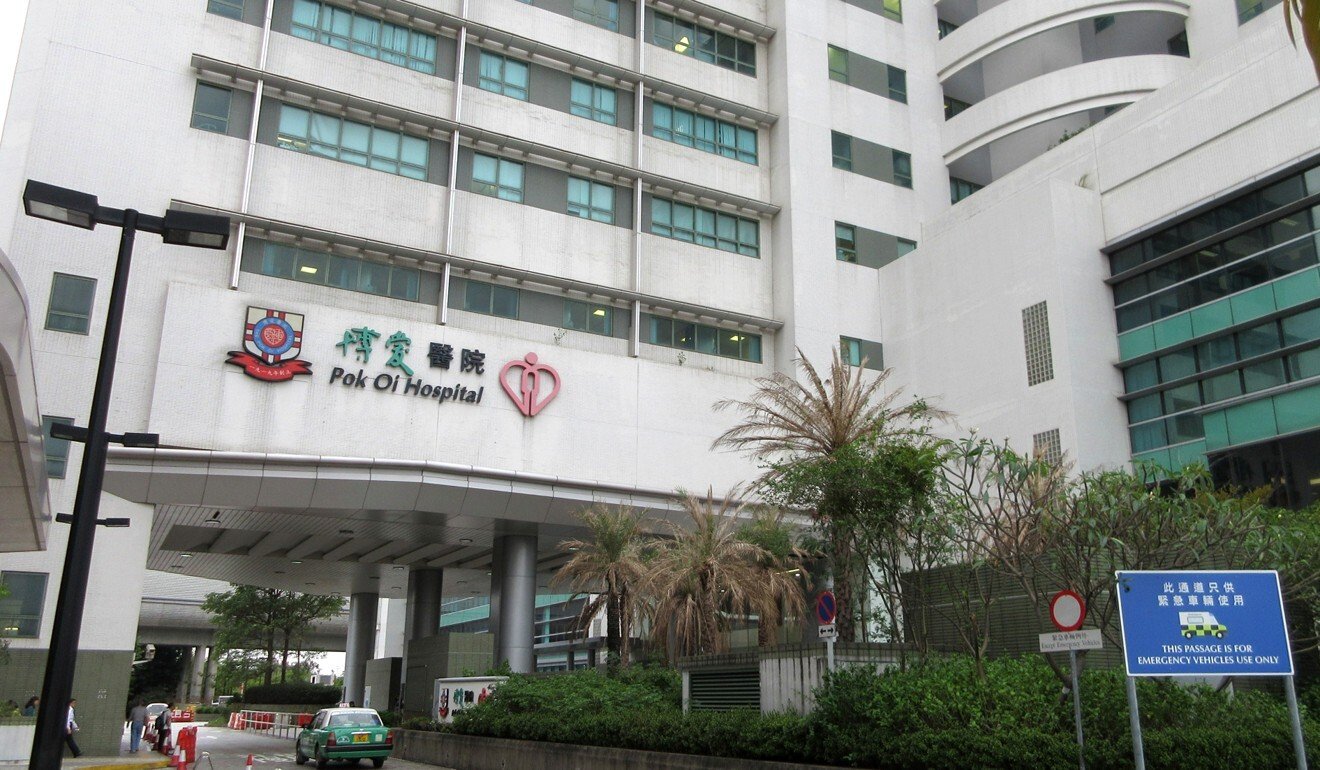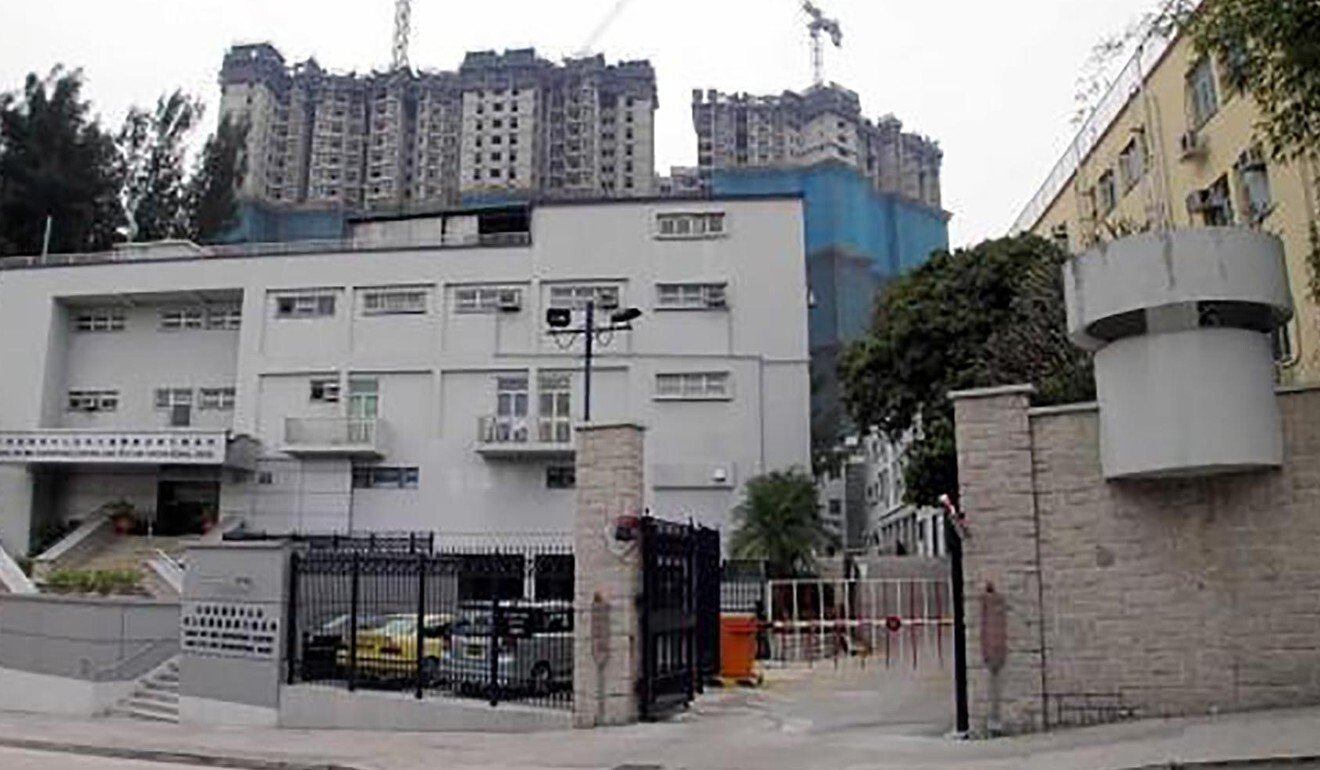
Coronavirus: more than 200 tested after possible transmission at Hong Kong public hospital
- Nearly all affected patients and medical staff return negative result after elderly stroke victim confirmed as infected with Covid-19
- The scare comes as city records 28 new cases, one of the lowest figures all week, but experts say too earlier to say outbreak is coming under control
The tests came as the city recorded another 28 Covid-19 infections on Sunday, taking the total to 890, with all but five having a history of overseas travel. That is the second-lowest daily total during a week where the figure has climbed as high as 59.
But authorities cautioned it was too early to ascertain a pattern. “The cases in the past day or two do not point to a falling trend,” said Dr Chuang Shuk-kwan, head of the communicable disease branch at the Centre for Health Protection. “We need to look at the longer term.”
The police force is also scrambling to get ahead of a possible outbreak at a station after a second officer tested positive for the virus on Saturday, with up to 100 colleagues headed into quarantine, according to a source.
Among the latest cases is the mother of a six-week baby boy who previously tested positive. She began to show symptoms when about to enter a quarantine centre on Friday, Chuang said.
The infant was confirmed as the city’s youngest Covid-19 patient on Wednesday, with authorities saying he had been held by a family friend, also a confirmed patient, who visited a bar with a history of infections.
Chuang said 23 of the newly infected had a travel history. Some had been on trips overseas together, while 12 were students returning from abroad. This came a day after the city recorded 17 cases, the fewest since March 21, roughly when an influx of residents began flocking home and driving up the number of infections. The rush of arrivals had eased somewhat, she said, so the city’s overall trend of infections remained unclear.
But local transmissions remain a cause for deep concern. The 93-year-old stroke victim at Pok Oi Hospital in Yuen Long was suspected of having contracted the virus from an infected patient who was at one point about 1.8 metres (six feet) away.
Debate over face masks ends: Hong Kong was right all along
Two wards have suspended operation and more than 270 patients and health workers undergoing tests, with some already entering isolation. Chuang said the affected patients shared wards with the two confirmed infected people on the 5th and 8th floor, but declined to provide details.
Health authorities said 72 nearby patients had been tested, with 56 found negative so far. About 200 staff were deemed at risk, 135 of whom were tested and cleared with the rest awaiting the procedure. None of 18 environment samples collected from the hospital showed a trace of the virus. The affected staff can continue to work and go home but will be monitored for any symptoms for 28 days.
“All medical staff have been wearing the appropriate personal protective equipment,” said Dr Lau Ka-hin, the Hospital Authority’s chief manager of quality and standards. “According to expert opinion, when our staff wear the appropriate PPEs, they will not be classified as close contacts.”
Six patients who had been discharged and sent back to their elderly care facilities were taken back to the hospital for tests, with all returning a negative result, he said.

Authorities were still trying to determine the chain of transmission but it was possible a sink basin or toilet taps in a washroom were the source, she said. Anyone who used the facility would be deemed a close contact.
So far, 122 officers fell into that category, including the three with symptoms, Chuang said. Most would be sent to the government’s main quarantine camp, Chung Yeung Estate in Fo Tan, according to a source familiar with the matter.
A lawyer involved in the cases said none of the arrested people were taken to the Shek Kip Mei station.

Leading microbiologist Dr Yuen Kwok-yung, a professor at the University of Hong Kong, warned of a possible third wave of transmission as workers in mainland China were resuming work and could travel to the city.
“After the second wave [from returning residents], there could be a third wave from mainland China. This cycle could go on until we have an effective vaccine, or the collective immunity in the community reaches about 60 to 80 per cent.”
He said the government was failing to test everyone showing mild symptoms and it was taking too long to determine the results.

